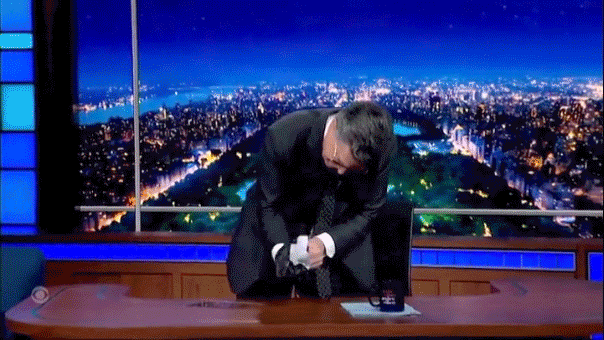Gaetz: SCOTUS decision is blow to the power of state legislatures
Reps. Matt Gaetz, R-Fla., and Mike Waltz, R-Fla., react to high court turning aside Texas election lawsuit on 'The Story'
The Supreme Court threw a wet blanket Friday on a once-popular liberal talking point that Justice Amy Coney Barrett would back President Trump’s efforts to overturn the election when the court denied a Texas effort that would have essentially nullified the presidential elections in Pennsylvania, Michigan, Georgia and Wisconsin.
Back when Trump rushed to fill the Supreme Court seat vacated by the death of Ruth Bader Ginsburg with Barrett prior to Election Day, many critics claimed the move could put democracy at risk. Some speculated that Barrett would help overturn the election to help Trump, and others argued that she should recuse herself from any potential vote. But when given the chance, Barrett didn’t do what her critics had long speculated.

A popular liberal talking point that Amy Coney Barrett would back President Trump’s efforts to overturn the election didn’t come to fruition. (AP Photo/Patrick Semansky)
SUPREME COURT DECLINES TO HEAR TRUMP-SUPPORTED TEXAS CASE OVER ELECTION RESULTS IN FOUR OTHER STATES
The Texas case argued the four states it is suing – all of which swung for President-elect Joe Biden –unconstitutionally changed their election statutes in their judiciaries or executive branches, when only the legislature is allowed to make election law. The reply brief Friday said the four states failed to adequately dispute their point that this makes their entire elections invalid.
“The State of Texas’s motion for leave to file a bill of complaint is denied for lack of standing under Article III of the Constitution,” the Supreme Court’s order reads. “Texas has not demonstrated a judicially cognizable interest in the manner in which another State conducts its elections. All other pending motions are dismissed as moot.”
The court did not provide a complete vote breakdown, so it’s unclear how Trump's nominees – Justices Neil Gorsuch, Brett Kavanaugh and Barrett – may have voted on the appeal, but no dissents were published.
“Wow, can't believe Amy Coney Barrett breached her secret agreement with Trump to throw the election his way,” Washington Free Beacon editor-in-chief Eliana Johnson joked.
While Johnson’s comment might come off as hyperbole, there are plenty of examples to back it up.
PENNSYLVANIA ACCUSES TEXAS OF SEEKING 'TO DECIMATE THE ELECTORATE' IN FIERY SUPREME COURT BRIEF
Left-wing MSNBC host Joy Reid said early on Nov. 4 that Barrett could not be trusted to follow the law if Trump took any election complaints to the Supreme Court. Reid also disparaged Supreme Court Justice Clarence Thomas as "Uncle Clarence" in the rant, a reference to the "Uncle Tom" racial slur for Black men viewed as overly deferential to Whites.
"So what I think scares people is that if [Trump] decides to do something that legally makes no sense ... but if they somehow manage to stumble into the Supreme Court, do any of you guys trust Uncle Clarence and Amy Coney Barrett and those guys to actually follow the letter of the law? No!" she said. "I mean, it's a completely politicized Supreme Court that you can't just trust that they're going to do the right thing."
Slate published a feature headlined, “Amy Coney Barrett’s First Votes Could Throw the Election to Trump,” while New York magazine wrote Trump “demanded that Amy Coney Barrett should be seated in time to make a favorable decision on his behalf” if the election goes to the Supreme Court. Bloomberg’s Noah Feldman wrote last month that Barrett needed to recuse herself from the decision.
“If the Supreme Court takes on a case connected to the outcome of the presidential election, Justice Amy Coney Barrett will face the most important decision of her career: not how to vote, but whether to participate at all,” Feldman wrote. “Never before has a president explicitly stated that he is choosing a justice so that she will be able to adjudicate that president's own immediate reelection. And while there are arguments both for and against recusal, the argument for recusal is stronger.”
Feldman indicated that Americans might not be able to “reasonably and legitimately expect fairness” if Barrett didn’t recuse herself.
“A close analysis of this situation leads me to conclude that Barrett must recuse herself in order to preserve the legitimacy of the judicial process and the Supreme Court,” Feldman wrote.
TEXAS AG PAXTON QUESTIONS SUPREME COURT RULING, SAYS 'THIS WAS OUR ONLY CHANCE'
The Washington Post published a similar opinion before the election took place when former U.S. Court of Appeals Judge J. Michael Luttig penned an Oct. 17 column, “A 2009 Supreme Court ruling may require Barrett to recuse herself from 2020 election cases,” pointing to a decade-old case as precedent.
The Post op-ed argued precedent made it fair to ponder “whether a reasonable person would conclude that [Barrett’s] impartiality would be inescapably overborne by the flood of influences brought to bear on her” if she had to decide Trump’s political fate.
Democratic Sen. Sheldon Whitehouse also published an opinion piece for the Washington Post claiming: “Justice Barrett must recuse herself from deciding the future of the president who picked her,” insisting Trump “has made clear he wants Barrett in place to help him win the election.”
The Hill had a version, too: “Could Justice Amy Coney Barrett deliver the election to Trump?”
Following Friday’s Supreme Court decision, Northwestern University law professor John O. McGinnis penned a New York Post opinion piece headlined, “Democrats’ fear and loathing over Trump-appointed judges totally unfounded,” which puts on a spotlight on how wrong many were.
“Not one Trump-appointed judge has supported the president’s claims of a stolen election,” McGinnis wrote. “Judges appointed by Republican presidents, including Trump, have punctiliously followed the law and protected the Constitution. They deserve the gratitude of all Americans, regardless of party.”
Many took to Twitter to mock the now-debunked liberal talking point:
CLICK HERE TO GET THE FOX NEWS APP
Fox News’ Tyler Olson and Bill Mears contributed to this report.










































